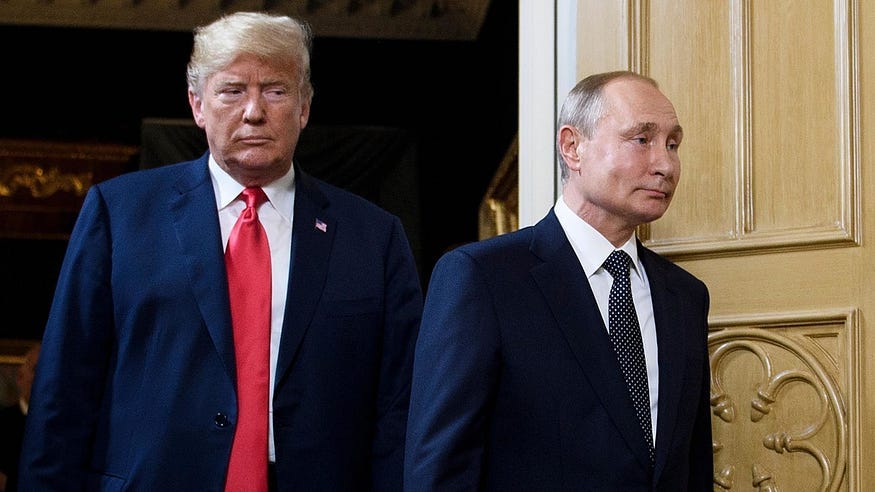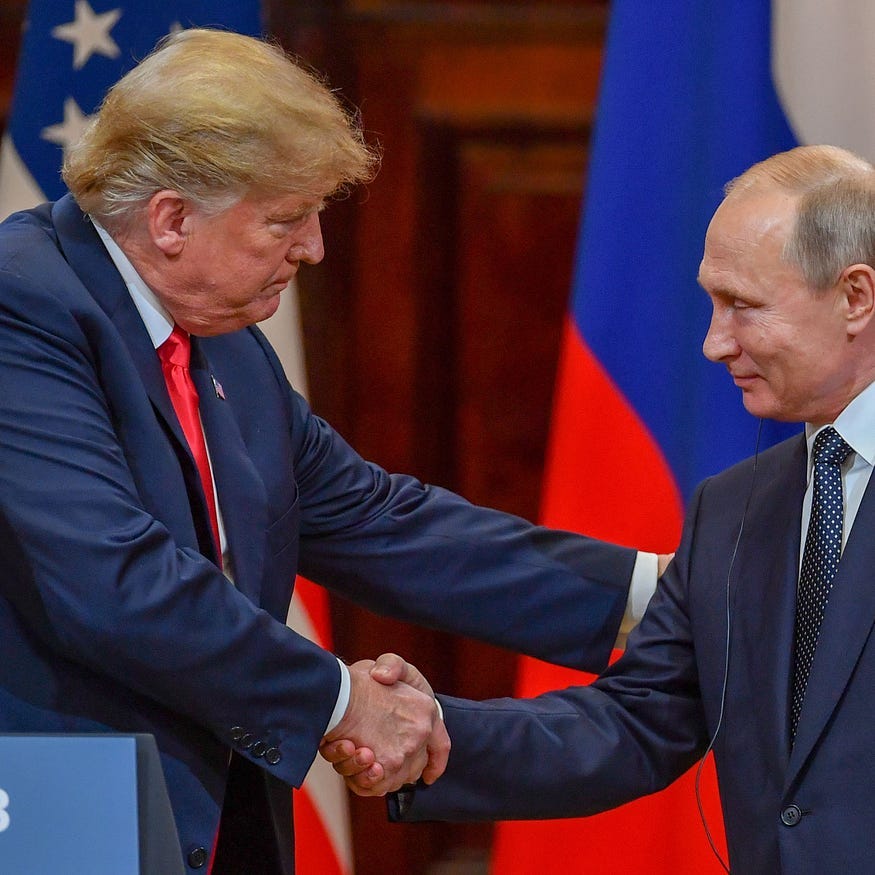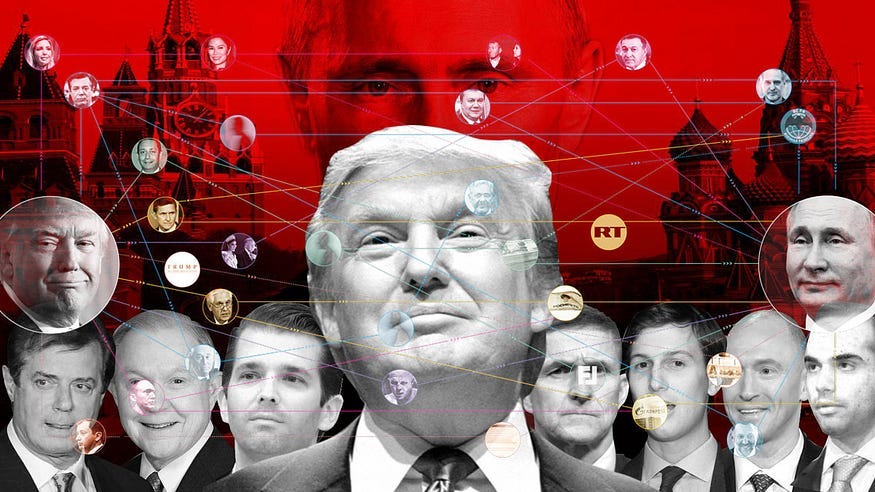Money, Power, and Influence: The Trump Organization’s Risky Global Gambit
From financial desperation to international entanglements: How the Trump Organization’s business dealings raised suspicions of money laundering, foreign influence, and possible compromise.
Introduction: A Business in Crisis
In the wake of the 2008 financial crisis, the Trump Organization found itself on shaky ground. Burdened by multiple bankruptcies and facing significant financial troubles, the business was in urgent need of cash. This led to a dramatic shift in strategy — from traditional real estate development to focusing on branding and licensing deals globally. The organization, under Donald Trump’s leadership, stopped building its own properties and instead began licensing the “Trump” name to real estate projects across the world. However, this pivot towards an international branding model would soon embroil the Trump Organization in a web of complex, and at times, controversial deals that would raise questions about the legality, ethics, and political implications of its actions.
The Shift to Branding: A New Business Model with Old Problems
The Trump Organization’s transformation into a marketing company centered around selling the “Trump” brand was seen by many as a necessary evolution for a business struggling with liquidity. The new strategy was to leverage Trump’s celebrity status, fueled by his TV show, “The Apprentice,” to market luxury properties without actually owning or developing them. This model was, in essence, less capital-intensive but more dependent on global reach and partnerships in foreign markets, some of which had complex and opaque legal and financial systems.
However, this approach brought Trump and his organization into contact with numerous individuals and entities whose backgrounds and business practices would later be scrutinized. Deals in countries such as Azerbaijan, Turkey, Georgia, and the Philippines — often involving partners tied to corruption, human rights violations, or dubious financial dealings — raised red flags among analysts and investigators.
The Appeal to Russian and Post-Soviet Oligarchs
One of the most notable aspects of the Trump Organization’s international deals is its apparent appeal to wealthy Russian and former Soviet oligarchs. The “Trump” brand — synonymous with luxury, opulence, and a kind of ostentatious success — appealed to many wealthy individuals in Russia and other former Soviet states. These oligarchs, many of whom were heavily invested in real estate and other ventures outside of Russia, became key clients and partners for the Trump Organization.
In many ways, Trump’s business model seemed tailored to attract this particular demographic. As one reporter noted, “wealthy Russian men or former Soviet Union men think of manliness” in terms that aligned with Trump’s public persona: flashy, successful, and married to younger, glamorous women. This perception opened doors in several markets but also created pathways for risky entanglements with individuals who had connections to organized crime, money laundering, and even the Kremlin itself.
Suspicious Offshore Entities and Financial Opacity
As the Trump Organization expanded its global branding efforts, many of the deals it engaged in involved entities registered in offshore jurisdictions like Malta, the Netherlands, and the British Virgin Islands. Such registrations, while not illegal per se, are often used to obscure the actual ownership and financial flows associated with business activities. The secrecy surrounding these deals fueled speculation that they were structured to avoid taxes, hide money laundering, or facilitate other illicit activities.
Journalists and investigators who probed these deals often found it challenging to obtain clear, definitive information. Many of these businesses were set up in ways that made it nearly impossible to track their actual ownership or financial operations. These opaque structures also raised concerns about whether Trump or his business partners were using these arrangements to engage in financial activities that could compromise their independence or integrity.
Business with “Problematic People” in Complicated Countries
The Trump Organization’s deals in countries like Azerbaijan, Georgia, and the Philippines often involved partnerships with individuals or entities that had questionable backgrounds or were linked to local power structures in ways that raised ethical concerns. For instance, the Trump Tower project in Baku, Azerbaijan, was developed in partnership with a local company tied to the Iranian Revolutionary Guard Corps, a group designated as a terrorist organization by the U.S. government. Similarly, in Georgia, Trump’s deal was reportedly linked to a businessman with connections to Russian organized crime.
These partnerships exposed the Trump Organization to a wide range of legal, ethical, and reputational risks. Some of the deals appeared to be less about real estate and more about gaining political influence or moving money through complex networks of shell companies. These transactions often operated in jurisdictions with weak regulatory oversight, making them attractive targets for money laundering and other illicit activities.
The Roots of Possible Collusion: Business Before Politics?
Speculation has long surrounded the possibility that Donald Trump’s alleged collusion with Russia during the 2016 presidential campaign was not necessarily rooted in politics, but in business. If there was any collusion, many experts argue, its origins might be found in the Trump Organization’s complex web of international business deals. The suggestion is that Trump’s business ties, particularly those connected to Russian money and oligarchs, may have created financial dependencies or vulnerabilities that could be exploited for political purposes.
For example, when Trump hinted in a New York Times interview that investigating his business deals would be crossing a “red line,” it suggested that there might be areas of his business that he wanted to keep away from public scrutiny. This led journalists and investigators to take a closer look at his foreign business transactions, particularly in regions like the former Soviet Union, where connections to Putin’s inner circle were just “a few hops” away.
The Allegations of Money Laundering
Allegations of money laundering have also haunted the Trump Organization. Investigators and journalists have raised concerns that some of Trump’s properties, including Trump Tower in New York, were used as vehicles for laundering money from dubious sources. The model of selling high-end properties to anonymous buyers, a practice that Trump’s business engaged in for decades, has been identified as a common tactic used in money laundering schemes.
Experts argue that Trump’s willingness to engage with “problematic people” in countries where the lines between politics, business, and organized crime are blurred further increased the likelihood that his business might have inadvertently — or deliberately — become involved in laundering illicit funds. Given the intertwining of Russian business interests, organized crime, and political power, it is not difficult to see why many observers remain concerned about the nature of Trump’s business dealings.
Intimidation, Fear, and the Culture of Silence
The challenges faced by journalists investigating the Trump Organization highlight another troubling aspect of this story: the culture of fear and intimidation that surrounds it. Reporters have recounted how sources were often too afraid to speak on the record, fearing retaliation or retribution. In some cases, journalists themselves faced harassment or threats.
One investigative journalist mentioned meeting a source who insisted on turning off their phones and leaving them in their cars — a clear sign of the cloak-and-dagger atmosphere that has come to define efforts to uncover the truth about Trump’s business dealings. The fear of being attacked on social media or even in person has created an environment where many are reluctant to share information, contributing to the opacity surrounding Trump’s business practices.
The Broader Implications: A President Potentially Compromised?
Given the Trump Organization’s broad and risky international dealings, the potential for compromise is significant. If Trump, as a businessman, became financially entangled with foreign entities or individuals who could exert influence over him, it raises questions about his capacity to act independently as president. Critics argue that his business model — centered on high-risk deals and relationships with dubious partners — created numerous avenues for potential foreign influence, which could explain some of his controversial decisions and rhetoric as President.
For instance, Trump’s uncharacteristic deference to Russian President Vladimir Putin and his reluctance to criticize Russia’s geopolitical maneuvers, even in the face of evidence of election interference, have led many to wonder whether these actions were motivated by personal or financial considerations.
Unanswered Questions and the Need for Transparency
The full extent of the Trump Organization’s international dealings and their implications may never be known, but the patterns of behavior, the lack of transparency, and the significant number of red flags raised by these activities warrant continued investigation. The questions surrounding Trump’s business dealings are not just about potential criminal behavior; they are about the integrity of democratic institutions, the independence of national leaders, and the influence of money in politics. As the world grapples with the complex interplay of business, politics, and international relations, the case of Donald Trump and his organization remains a compelling, cautionary tale of the risks inherent in unregulated, opaque global capitalism.
References and Key Moments:
Trump’s Financial Struggles and Shift to a Branding Model
Following the 2008 financial crisis, the Trump Organization struggled with bankruptcies and a dire need for cash, prompting a shift from real estate development to licensing the “Trump” brand globally. This transition marked the beginning of a new business strategy involving international deals with questionable partners.
Appeal to Russian and Post-Soviet Oligarchs
Wealthy Russian and former Soviet elites were drawn to Trump’s brand due to its symbols of opulence and status. This opened the door for potential deals in “deeply corrupt economies,” involving partnerships with figures tied to Russian interests.
Suspicious Offshore Entities and Financial Transparency Issues
Many of the companies involved in these international deals were registered in offshore jurisdictions like Malta, the Netherlands, and the British Virgin Islands. This lack of transparency raised concerns about the legality and nature of these business arrangements.
Possible Collusion Roots in Business Deals
The speculation that potential collusion with Russia may have stemmed from Trump’s international business deals rather than political motives suggests a web of financial desperation and risky entanglements that could have far-reaching implications.
Intimidation, Fear, and Lack of Information
Journalists and investigators faced significant challenges in uncovering the truth behind Trump’s business dealings due to a climate of fear and potential retribution, particularly from online attacks.
Money Laundering Allegations
The Trump Organization’s “promiscuous approach” to business partners and willingness to engage with “problematic people” in countries where politics, intelligence, and business are intertwined has fueled allegations of money laundering and raised questions about possible compromises.
These key moments highlight the complexities of Trump’s global business dealings and the potential implications for national security, transparency, and governance. The entanglements, lack of transparency, and risky partnerships suggest a pattern that warrants further investigation and scrutiny.





